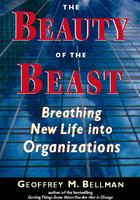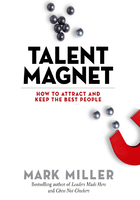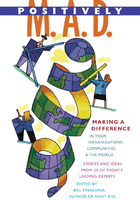There's a reason press secretaries are among the first staff hired on political campaigns. The decision to appoint and train a team of communications professionals is among the most important actions a leader can take.
A well-trained communications team can challenge unjust or unpopular policy decisions, lay the groundwork for major public policy initiatives, catapult a professional career, influence the outcome of political campaigns, establish a favorable narrative or counteract a problematic one, and support or decimate a company's brand. For the organization or campaign, communications can mean the difference between success and failure.
Communications is a broad umbrella under which public relations, media relations-including paid and earned media-rapid response, digital media, graphic design, and print and production all fall. For the purposes of this book, I focus on the broad umbrella of communications with an emphasis on public relations and earned media. If you're a cash-strapped organization, earned media (i.e., media coverage you don't have to pay for) will be your best friend.
I also discuss how public relations supports communications. By public relations I am referring to a well-intentioned and deliberate strategy to communicate who you are and what you represent to donors, clients, constituents, or customers through the media and other public channels. PR is both proactive (e.g., outlining an affirmative vision for an organization or leader) and reactive (e.g., responding to inquiries from any range of public outlets, including the media).
As essential as communications is to an organization, communicators and PR professionals sometimes get a bad rap. We are sometimes referred to as talking heads and accused of indiscriminately carrying our organization's water. While problematic, this is probably preferred to another common label: spin doctors. These are, of course, pessimistic views of communications and public relations. But keep in mind that my brand of public relations is mission-driven, communications for organizations whose sole objective is making the world a better place. There is nothing wrong with advocating on behalf of a mission-driven organization or an issue you truly believe in. And there is nothing undesirable about advocating on behalf of groups working to address pressing societal issues, such as structural racism, social injustice, inequities in education, income inequality, and poverty.
Communications for Mission-Driven Organizations
For the mission-driven organization, communications is a powerful tool to rail against injustice. If you don't like the way politicians treat the least of us, there are myriad communications tactics-such as showcasing testimonials from impacted communities through a photo series or YouTube videos, highlighting the impact of a proposed policy through an infographic, an open letter shared with the press, media conference calls, newspaper ads, and video press releases-to publicize the impact of public policy and encourage decision-makers to reverse course.
When combating unjust policies, a well-oiled communications and public relations program can allow a mission-driven organization to punch above its weight class. I learned this firsthand as a communications staffer for the local healthcare and social services union SEIU District 1199 (WV/KY/OH). Union representatives were negotiating a collective bargaining agreement for nursing-home workers in West Virginia. As you can imagine, most nursing-home workers (who are at the heart of the nursing-home industry) make very little money, even as they sometimes pay exorbitant fees for necessities such as healthcare insurance. At the same time, nursing-home owners enjoy much higher salaries and profit margins than the frontline staff who allow the business to thrive. Like everyone else, nursing-home workers want to be able to care for their patients and earn enough money to support their families. In this case, winning in the court of public opinion required us to present a stark contrast between perceived right and wrong. We had to highlight the discrepancy between the salaries and profit margins of nursing-home owners and operators and that of their staff. Painting a clear picture of how nursing-home workers are suffering in the face of these disparities was the key to invoking demand for change.
Consider also the digital advocacy group Color of Change, led by Rashad Robinson.[4]Color of Change has launched a series of powerful campaigns that have held multimillion-dollar corporations accountable to local communities. They played a key role in exposing the American Legislative Exchange Council (ALEC) and what some would characterize as ALEC's nefarious policies to push template legislation that is harmful to working families and communities of color in state legislatures across the country. ALEC is a membership-based organization that spends significant sums of money lavishing expensive trips on lawmakers who are then encouraged to introduce model legislation advancing conservative ideology in their respective state legislatures. The policies include anti-voting measures and stand-your-ground laws that have a disparate impact on communities of color. In addition, ALEC's policies have adversely impacted working-class individuals and families, drawing the ire of labor unions and left-leaning political groups.
Color of Change launched petitions, sent direct mailers to companies that were members of ALEC, regularly sent email updates to their hundreds of thousands of followers, and generally called out ALEC using every traditional and social media platform available. The emails directed followers to take action that in turn placed pressure on the companies that were members of ALEC. The campaign succeeded in causing grave embarrassment for dozens of companies, which led many to part ways with ALEC as the National Journal reported on November 10, 2014:
ALEC has witnessed a torrent of high-profile departures in the past. In 2012, a collection of major corporations, including Blue Cross Blue Shield, Coca-Cola, PepsiCo, and Kraft, left the organization following public outcry over the group's then-sponsorship of controversial "Stand Your Ground" laws, which came under heavy scrutiny during the Trayvon Martin case. The organization no longer works on legislation related to firearms.[5]
While there were many groups, including labor unions and legislative watchdogs, who launched accountability campaigns targeting ALEC, the role of Color of Change cannot be understated in successfully calling out the organization and bringing about positive change. There's another, more practical reason for highlighting the Color of Change ALEC campaign. It is an example of what can be accomplished when groups with similar ideologies work together.
Working in tandem with other groups on a specific campaign is a key strategy for maximizing limited resources. In the civil rights community, organizations that challenge barriers to voting, such as The Leadership Conference on Civil and Human Rights, NYU's Brennan Center for Justice, the NAACP Legal Defense Fund, and Advancement Project, often work collaboratively. When one organization is leading litigation or the work around a specific case, other organizations routinely offer aid-even if that aid is limited to helping to promote the case or frame it in the proper context in the media. Through regular calls for communicators, lawyers, and other civil rights advocates, work is easily divided up, and individual players get more accomplished. For instance, when Advancement Project was preparing for a legal appeal to North Carolina's anti-voting measure, I organized numerous conference calls with voting rights advocates and communicators in which I outlined communications needs and asked different coalition members to help fulfill those needs. During the calls, I requested groups issue press releases, write opinion essays, and assist with promotion of the case on social media. Many obliged my request.
Advancement Project reaped many victories using aggressive communications campaigns during my time there. In 2013, my former colleague Cynthia Gordy organized a media conference call for our partner New Florida Majority, sent a powerful press release, and drafted a compelling opinion piece questioning an amendment to Florida's omnibus budget bill (Senate Bill 600). The measure would have required voters with disabilities, persons with limited literacy, and those with language barriers to personally know their assistors prior to receiving help on Election Day. The amendment would have also restricted assistors to helping ten people each. Many felt the measure was put forward to make it harder for certain voters, namely those who vote Democratic, to cast a ballot. Following immense public pressure that included nonstop media coverage featuring the people most impacted by the measure, the sponsor of the amendment, Senator Jack Latvala, pulled the proposal from consideration in 2013.[6] Had we passively allowed the debate to play out solely in the halls of the legislature without the glare of media scrutiny, the harmful and unnecessary measure would likely have gone into effect.
One more example: In the spring of 2013, the Reverend Dr. William J. Barber II of the North Carolina State Conference of the National Association for the Advancement of Colored People (NC NAACP) organized "Moral Monday" protests at the North Carolina General Assembly. Barber's Moral Monday protests were one part of his broader Forward Together movement, which advocated fusion or coalition politics, the likes of which had not been seen since the civil rights movement of the 1950s and '60s. Barber was at the helm of not only the NC NAACP but also the Historic Thousands on Jones Street People's Assembly Coalition, and serves as senior pastor of Greenleaf Christian Church in Goldsboro, North Carolina. He is accomplishing in North Carolina what many political parties in states across the country have been unable to do: challenge unjust policies through the lens of morality, hold political leaders accountable, and build cross-cultural and ecumenical alliances.
His weekly protests challenged a wave of extreme and regressive policies passed by ultra-conservatives in the state legislature. At the conclusion of the first wave of Moral Monday protests in 2013 and 2014, close to a thousand people had been arrested for peacefully petitioning their elected leaders for a redress of grievances. The protesters included doctors, nurses, teachers, and students. They entered the statehouse to pray, sing, and meet with their legislators but were charged with trespassing and disturbing the peace. Media coverage of the protests and arrests gave Rev. Barber and his colleagues the opportunity to reach a much broader audience with powerful moral messages about the immoral and illegitimate laws being passed by the General Assembly.
While the concerned community leaders never should have been arrested and charged in the first place, the sustained organizing work and the help of over 100 volunteer lawyers who defended the protesters, created an environment where charges against hundreds of people were ultimately dropped. They did this by being in constant contact with the community and highlighting the immoral policies being passed by the legislature. This allowed the community to understand what was at stake and support the resistance movement. Additionally, the contact with the community was covered favorably in the press, which kept the momentum on the side of the organizers. It was the massive grassroots movement afoot in North Carolina led by Rev. Dr. Barber and the people participating in the Moral Monday protests that laid the groundwork for the dismissal of charges.[7]
I should mention that the goal of Barber's movement was not primarily to get the charges dismissed but rather to get the North Carolina legislature to change course.
Communicating Your Alpha Dog Story
The organizations that stand out and have the most trusted brands have at least one thing in common: a strong communications infrastructure. Note I wrote "strong" not "costly." While considerable resources are needed for political campaigns, organizations can get by with far smaller communications budgets. So long as communications team members are credible, creative, responsive, and relentless, they can work miracles in terms of their ability to effectively advocate on the organization's behalf. As I explore throughout this book, communicators can use these four principles to create an effective narrative or Alpha Dog story about their organizations regardless of their budgets. They can also use these principles to change an unhelpful Alpha Dog story that may have been created prior to the communicator joining an organization.
The Alpha Dog story is one of the earliest and most defining stories written or produced about your organization, candidate, or campaign. The person or entity who creates the story benefits from defining an organization or campaign before others have an opportunity to do so. Former USA Today reporter and author Sally Stewart, describes the Alpha Dog frame this way:
When an editor assigns a story about a company to a reporter, the first move the reporter makes is to seek out everything that has ever been written about that company. The Internet has made that process very easy. At some of the larger newspapers, magazines, and TV news shows, the reporter calls the in-house librarian and orders a Lexis-Nexis search. If the resulting research turns up unflattering facts, such as a pattern of unscrupulous business practices and faulty merchandise, it's a given that the reporter will mention those old accusations in her new story. Moreover, it doesn't matter if the company has changed or if new management is in charge. The first story written about the company is the Alpha Dog Story, and the Alpha Dog leads the pack. Therefore, it is absolutely essential to any company that you take time securing that all-important Alpha Dog Story, as it will determine your company's coverage for years to come.[8]
If the Alpha Dog story is negative or unflattering, as Stewart mentions, you and your organization are invariably and unceremoniously on the defense. The defense is obviously the unwanted position in politics, business, and grassroots organizing because it surrenders control. Rather than pushing your message, you are spending your time responding to a set of questions and circumstances that you did not create. You are in a reactive versus proactive position.
In politics, it is often said that arguing on an opponent's frame is a losing proposition. What does this mean? If I set the frame, I am crafting it in a way that is beneficial to me and the issue I'm advocating. My opponents who engage on my terms, using my frame, are at a distinct disadvantage. What is more, an unhelpful Alpha Dog narrative lingers like a bad cold or a house guest who has long overstayed his welcome.
I've had several experiences challenging harmful Alpha Dog stories. When I joined the labor union SEIU District 1199 (WV/KY/OH) in August 2004 as a communications coordinator, I was thrilled to be leading communications and advocacy work for an organization representing nursing homes, hospitals, libraries, Head Start facilities, and public sector employees. The work was not without its challenges. For decades, there has been an intense backlash against labor unions. In 1945, more than a third of working people belonged to unions.[9] In 1998, just 13.9 percent of people belonged to unions. Today, the percentage of union membership in the private sector is in the single digits. Since fewer people belong to unions, fewer people understand the role labor unions play-and have played-in our society. Moreover, decreased membership also means unions lack the power they had in earlier eras. Since opposition to their existence is fierce, highlighting working conditions for working-class people through earned media was beyond difficult. The court of public opinion was not on our side, and many reporters often seemed hostile to our pitches. The only exception was when the spokesperson was a rank-and-file union member (as opposed to a paid union staff member or leader). When we did score press coverage, such as news articles and editorials, I noticed they were laced with personal jabs at our then president, Dave Regan.
The bad blood stemmed in part from the union's position on a 2003 ballot measure that levied a special tax on Cuyahoga County homeowners to pay for services for indigent families and persons with disabilities. In exchange for supporting the levy, the union asked county officials to commit to refraining from using public funds to launch high-pressure, anti-union campaigns. When the county refused to do so, the union launched a campaign urging defeat of the levy. This approach backfired horribly. Asking the public to defeat a levy for persons with disabilities-who serve as wonderful messengers and automatically garner public sympathy-was a losing proposition. Trying to explain to the public what happens when companies run anti-union campaigns also proved difficult in an environment where union membership was particularly low. The union was fighting a losing battle, and the media ruthlessly attacked us and our leader, Dave Regan. Our unwanted Alpha Dog story was that we were bullies who didn't care about people with disabilities.
The media turned every mention of our organization into an opportunity to remind readers of our earlier opposition to the levy and the attacks went on for over a year. We eventually hired a savvy media consultant, Dale Butland, who developed a plan to allow the union to move from defense to offense. Butland's plan included a statewide editorial board tour permitting Regan to explain who he was and his vision for making life easier for working people, such as nurses, prison psychiatrists, Head Start workers, home health aides, and librarians. It was only after we crisscrossed the state meeting with editorial boards large and small that the vilification in the press finally subsided.
The editorial board meetings allowed us to humanize Regan. It allowed him an opportunity to display his concern for working families, including union and nonunion households. Regan is an Ivy League-educated leader, so he also challenged preconceived notions about so-called union bosses. There wasn't a question he was asked during the editorial boards that he couldn't answer. After the meetings, most editorial boards had an understanding, if not appreciation, for Regan and the work he was spearheading.
It bears mentioning that leadership matters. If the media is impressed with your organization's leader and mission, it's easier to garner favorable news coverage. If donors and investors have confidence in an institution's leader, they are more likely to invest financial resources in the entity. Let this serve as a reminder to leaders who do everything in their power to avoid the media: reporters cannot get to know you if you avoid them. Preserving or repairing a leader's image is imperative to an organization. Failure to do so may result in the furtherance of an unhelpful Alpha Dog story, which can follow an organization or company for years. A bad Alpha Dog story is more than a temporary inconvenience or black eye. It casts aspersions and results in costly distractions from the important work your organization is doing.
A strong public relations program can help create a positive Alpha Dog story so that the organization can focus on the issues that really matter. And developing a strong program is as simple as being creative, credible, responsive, and relentless.
Your Seat at the Table
The most important point to keep in mind about using communications to further your organization's goals is that the communications team must be fully integrated in all strategic discussions. This allows communicators to understand the thinking behind different proposals and craft plans to support various organizational campaigns. This integration must happen early and often. Here's why: The communications field is broader than mere implementation. It also involves thinking strategically about the impact of various business decisions and outlining best practices for how to talk about those decisions. "Communicators," as my former boss Dave Regan would chide, "aren't maintenance repairmen." We don't exist to fulfill orders, and forcing us to carry out someone else's vision without an opportunity to co-develop work plans is ineffective and demoralizing. The integration of communications should be substantive, meaning the communications and PR team must have a say in the development and execution of strategic decisions. When you combine the perspective and input of public relations professionals with a carefully crafted strategic plan, you help maximize output and ensure the very best outcomes for your issue-advocacy campaign or organization. You also ensure your communications team feels valued and respected, which can help with retention. Organizations get a bigger bang for their buck if communicators are included at the outset of the campaign.
Communicators: The key to making the case for inclusion at the outset of campaigns is persistence. Be relentless in making the case for your inclusion in the early phases of campaigns. Frame your argument in a way that shows how your early involvement benefits your manager and organization. For example, "You'll understand the strategy, which will prepare you to develop appropriate communications plans and tactics." People are ultimately self-interested; so appeal to something they want, and you'll set yourself up for success.
Executives: It is costly and distracting to constantly replace staff, including communicators. Involving them in the early phases of a campaign boosts morale while ensuring you are benefitting from diverse perspectives. Early engagement of your communications team also gives them an opportunity to develop communications plans to carry out your work while also nurturing relationships with the media. If your staff members appreciate a heads-up on important projects, imagine how overworked journalists feel.
In the end, early involvement of communicators benefits both communicators and the organizations they serve.
Tactics versus Principles
Now that we're clear on the important role of communications in furthering your organization's goals, I will dissect the four principles of extraordinary communications as they apply to issue-advocacy campaigns and mission-driven organizations. When thinking about the elements for success in public relations, you may be tempted to focus solely on specific tactics. I am resisting this urge since I believe the four principles of being credible, creative, responsive, and relentless are as big a determinant to success as tactics. If you indiscriminately employ tactics without following core standards, your success may be short-lived or inconsistent at best. But if you operate from a blueprint that outlines the importance of, for example, responsiveness to a deadline-driven media, you'll be far more effective than focusing on the tactic of, say, sending a press release.
Moreover, tactics can and should vary from campaign to campaign and from organization to organization. They are influenced by a variety of factors including organizational culture and long-term campaign goals. I cannot possibly advise you on a comprehensive set of tactics to promote your issue or cause without a deeper understanding of the organizational culture and, more important, the goals of a given campaign. If the goal is to pressure an employer to allow workers to have a voice on the job and bargain collectively, the communications tactics may be far more aggressive than if the goal is to applaud an institution for implementing a favorable policy. But regardless of the tactic, principles matter. So, while I do highlight a range of tactics throughout the book (and particularly in Chapter 7), I invest more time in principles. My promise: if you follow the principles outlined in the next four chapters, you will be much better prepared to successfully implement the tactics your institutions and internal leadership team shape.















